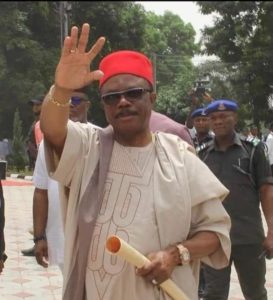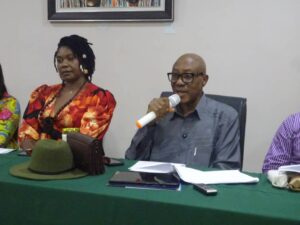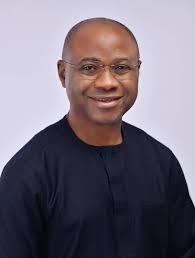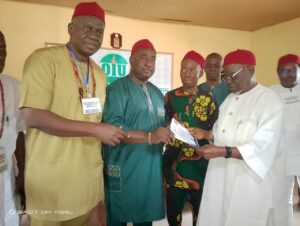Does Shamsuna know about the digital transformation agenda?

By Y.Z. Yau
Some months back, I had separate meetings with the Minister of Communication and Digital Economy and the Director General of the National Information Technology Development Agency (NITDA) during which both spoke glowingly about the Digital Transformation Agenda of Nigeria, and of what they were doing to ensure that Nigeria leverages digital technology to transform its economy and society.
The National Digital Economy Policy and Strategy which is the vehicle for the digital transformation of the country has the vision of making “Nigeria into a leading digital economy, providing quality life and digital economies for all” with a mission that commits that the country to building “a nation where digital innovation and entrepreneurship are used to create value and prosperity for all”.
The strategy rests on eight pillars among which are hard infrastructure, soft infrastructure, and service infrastructure. The idea of developing infrastructure is to address accessibility challenges and make digital infrastructure available to citizens, an important pre-condition for the digital transformation of the country. But while infrastructure is necessary, it is not a sufficient condition for the envisaged transformation. Infrastructure cannot on its own add value to anything. It is only when people use it that it can be of any use. For this reason, another of the pillars of the transformation agenda is Digital Literacy & Skills. This pillar requires digital literacy with a target of 90% by 2025.
However even with skill, we are still far from being able to use technology to transform the country. People must use both their skill and the infrastructure, Actual use of these is dependent on affordability. Affordability is an economic matter. Technically, it is the ability of people to afford digital services without injuring other critical needs such as food, shelter, health, etc. As a function of economic status, affordability is different for different people. Poor people generally have lower affordability. To level up and promote universal affordability, countries use regulation to bridge gaps in affordability profile. They also set have relevant vehicles to do this. In Nigeria the Universal Service Provision Fund (USPF) is the vehicle which funded through a profit tax on telecommunication service, the USPF tries to drive infrastructure and connectivity to areas where the market has failed. This bridging accessibility makes Developmental Regulation to be another important pillar for the digital transformation strategy.
In concrete terms affordability is about both the cost of ownership of means of interfacing with digital technology and the cost of its use. The essence of regulation is to improve affordability by bridging the two cost components. Since we hardly manufacture digital devices locally, the cost of ownership is determined by the floating value of the Naira which means that in this period when the Naira is on a free fall, this dimension of affordability is decreasing, with many Nigerians being unable to own devices. Nigeria is one of the countries with the highest volume of importation of second-hand electronic devices, many of which properly could be passed as e-waste. Government seems to be doing nothing about this.
Now the second cost component, that of use, is under attack from the Minister of Finance Budget and National Planning, Madam Shamsuna Zainab Ahmed. She is pushing to raise the VAT on telecommunication use from 7.5% to 12.5%. This is in spite of the fact as studies by the Alliance for Affordable Internet (A4AI) have shown, Nigeria has now of the highest cost of use for both voice and data in Africa. Her interest is to raise revenue for the country without consideration of the likely impact of the on the digital transformation agenda. She seems to think about revenue as an end rather than a means to an end. Already more than half of the population is digitally excluded and with this proposed policy, many more people will have to fall of the ladder of the digital world,
May be because Shamsuna’s life revolves around Abuja, Kaduna, and flights to Devos and other financial capitals of the world, that she cannot imagine the havoc her policy will wreak to affordability in the country. Unlike her, my life frequently intersects with communities that are not any map. They include names as Kabigel, Digiza, Jogayel, all of them on the eastern bank of River Jamaare. Each time, I want to speak to any one from these communities, I must travel there because I cannot get them using my gsm. Shamsuna would not understand what I found there. Many of the youth have handsets but they do not have SIM cards in their handsets. They listen to MP 3 from their handsets, bringing music of various genres to them. When I asked them why is it that they have handsets but no sim cards, the answer they give tells a classic of regulation.
First, they said that when their sim cards spoil or get lost, it is difficult for them to get replacement: this is something that Prof. Pantami, the Minster, and Prof. Danbatta, the Executive Vice Chairman of the Nigeria Communication Commission (NCC) would have to find how to address. The one that concerns Shamsuna is that they said even where they have sim cards, they cannot afford airtime, and they rather keep the sim cards home so that it does not either get lost or damaged. With this proposal of raising VAT, many more people will join ranks of those who cannot afford usage and keep their sim cards for decoration at home or for showing to their grandchildren that they too understand the digital era. Any this is not just rural people. I recall the response of friend, who was a PhD in computer Science holder once complained to me, that he could understand why he had to buy rice, maggi and other food stuff but not having to buy “air”, referring to airtime!









